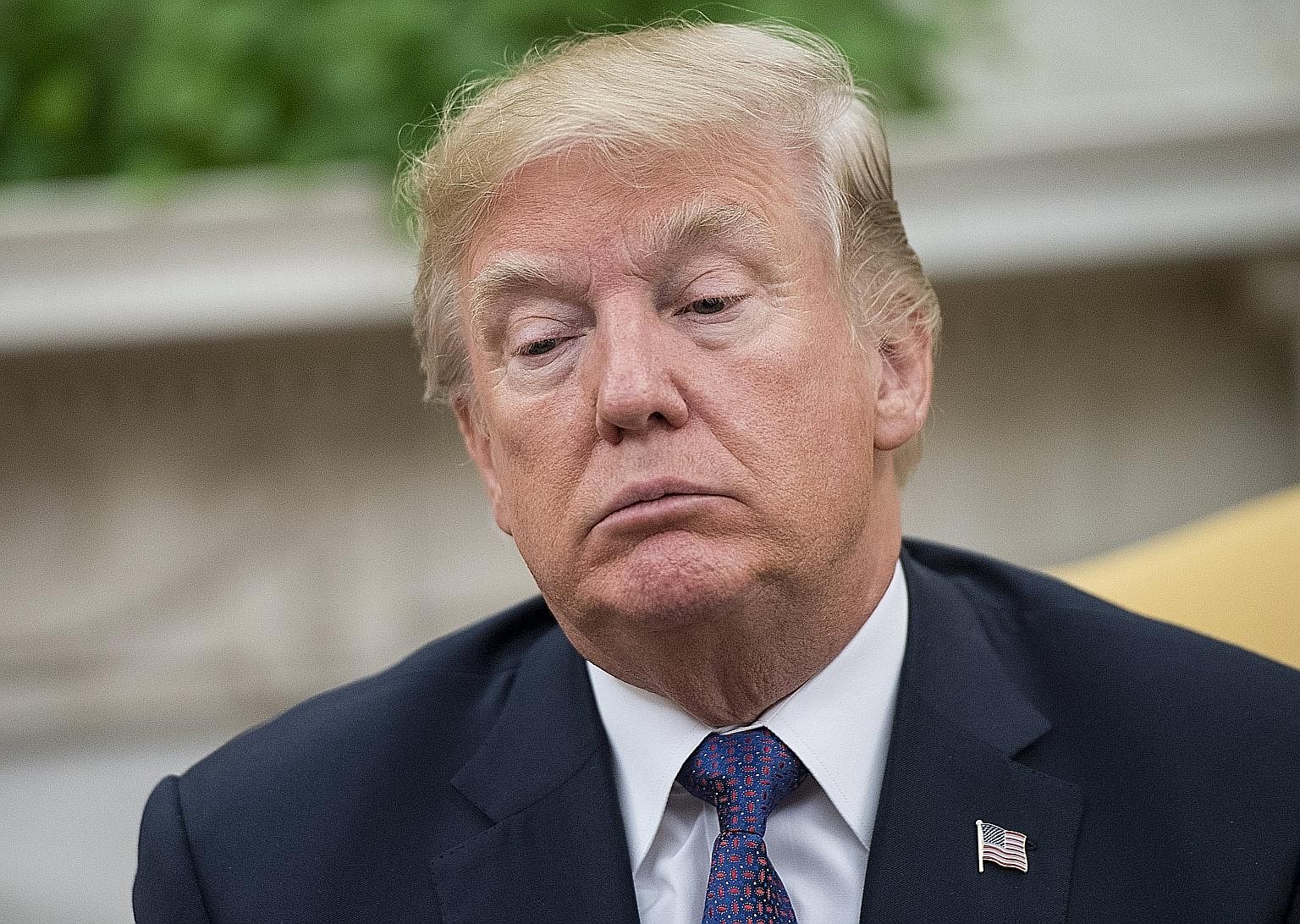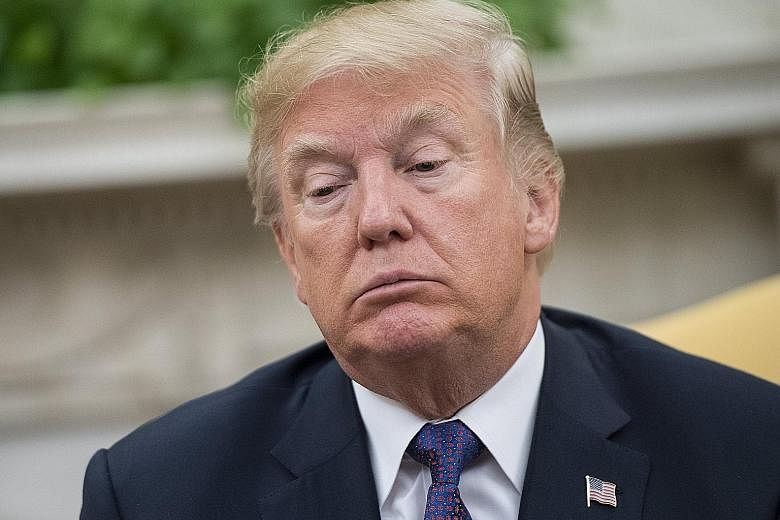United States President Donald Trump's first official visit to East Asia next month is historic in its combination of low expectations and high potential impact.
The President will visit Japan, South Korea, China, Vietnam and the Philippines, marking a potentially defining moment in the next chapter of US-Asia relations.
There is considerable benefit to making a first visit to Asia after rather than before the spectacle that has been the 19th Congress of the Chinese Communist Party. It is also of inestimable help to hear the private wisdom of Singapore Prime Minister Lee Hsien Loong, whom the President hosts today in Washington.
But as a five-nation tour ushers in America's post-pivot Asia policy, three harsh realities will precede the President's arrival at every stop on his itinerary.
In North-east Asia, Mr Trump will find grave doubts about the reliability of US leadership, especially given North Korea's irresponsible proclivity to evoke the spectre of nuclear war. Nobody wants to see Pyongyang deploy a deadly arsenal of missiles carrying hydrogen bombs. And a catastrophic conflict is everyone's nightmare.
The words Mr Trump chooses during his visit will influence Asian opinion about America's status as the ultimate security guarantor. Long seen as a benign distant balancer, US staying power and political will are increasingly called into question. Washington has focused on a North Korea strategy of maximum pressure and minimal diplomacy. In Seoul - or perhaps if he visits the DMZ or demilitarised zone, Mr Trump can channel Ronald Reagan in Berlin three decades ago ("Tear down this wall"), conveying both determination and imagination. He must signal to the region that his intention is to convert pressure into diplomatic opportunity, not war.

If the US cannot convince Asia to follow America's lead in dealing with Mr Kim Jong Un, North Korea's impulsive leader, there's scant chance that the region will help balance the Sinocentric siren call of Chinese President Xi Jinping.
This raises a second hard truth that Mr Trump must confront on his Asian tour: shifting economic realities.
As the President lands in Vietnam for the Asia-Pacific Economic Cooperation summit, the spotlight will be on economics. Here the perception that China is the main engine of global economic growth will loom larger than many in the presidential entourage would care to admit. Illustrative of China's popular ascendancy is that, according to a recent Pew poll, Australians by a two-to-one margin see Beijing rather than Washington as the economic leader. America may still surpass China in "soft power", but other data suggests even that gap is closing quickly.
The notion that China simply is the purveyor of public goods, as in building infrastructure under the guise of a benevolent Belt and Road Initiative, needs to be corrected. But Mr Trump must resist the temptation to take the lead in doing so, at least before he clarifies what the US will offer the region by way of an affirmative, inclusive agenda during his tenure. His prerequisite is to articulate a compelling vision, especially after waving the banner of economic nationalism and withdrawing from the Trans-Pacific Partnership (TPP) pact. Only then will he be at liberty to puncture some of the glib assumptions upon which Beijing's inflated narrative rests.
Mr Trump should remain attentive to geopolitical opportunities as well. Hence, he should visit Hanoi for bilateral talks with Vietnamese officials, before heading to Da Nang; and he should not completely close the back door that will remain open for rejoining the TPP.
The world's largest economy retains myriad levers for supporting Asia's economic opportunity. In the meantime, the President's call for fair and reciprocal bilateral trade and investment deals can highlight the high standards and transparency by which Washington seeks to fortify a free and open Indo-Pacific region.
A third reality concerning global challenges will be obvious by the time Mr Trump joins Philippine President Rodrigo Duterte and other regional leaders in Manila as they commemorate the 50th anniversary of Asean. Rising Asian leaders have pride and operate within their own political and cultural constraints, just as Mr Trump does.
The axiom that "all politics is local" pertains to Asia as well. Seeking to support efforts to confront global challenges such as terrorism, trafficking in illegal drugs and securing borders will best be done by offering support and capacity building, not judgment and disengagement. The US can both lead and cooperate, bringing in allies and partners to anchor Washington's goals within local mechanisms. Let the Philippines determine the scope of expanded counter-terrorism cooperation, for example, and then work with next year's Asean chair, Singapore, to broaden and deepen that cooperation.
Managing this trio of unavoidable obstructions - China's economic power, questions about America's role and seeing global challenges through a local prism - requires a specific type of preparation for November's journey.
At the top of the agenda is understanding the challenge. Mr Trump's call for America to advance a free and open Indo-Pacific region sets a new ambition rooted in history. The White House understands the high degree of continuity in a US policy focused on commerce, the maritime commons, and a balance of power operating within a rules-based order.
In the span of 12 days, few deliverables may emerge out of the President's Asian trip. Yet the impact will be enduring. Delivering powerful speeches in Seoul, Da Nang or Manila will not be as important as the follow-through, and it is impossible to do this alone. Success depends upon hewing to newly identified US priorities, empowering a multi-dimensional policy, and harnessing a network of effective and able partners and allies.
•The writer is senior director of the Asia-Pacific Security Programme at the Centre for a New American Security.

